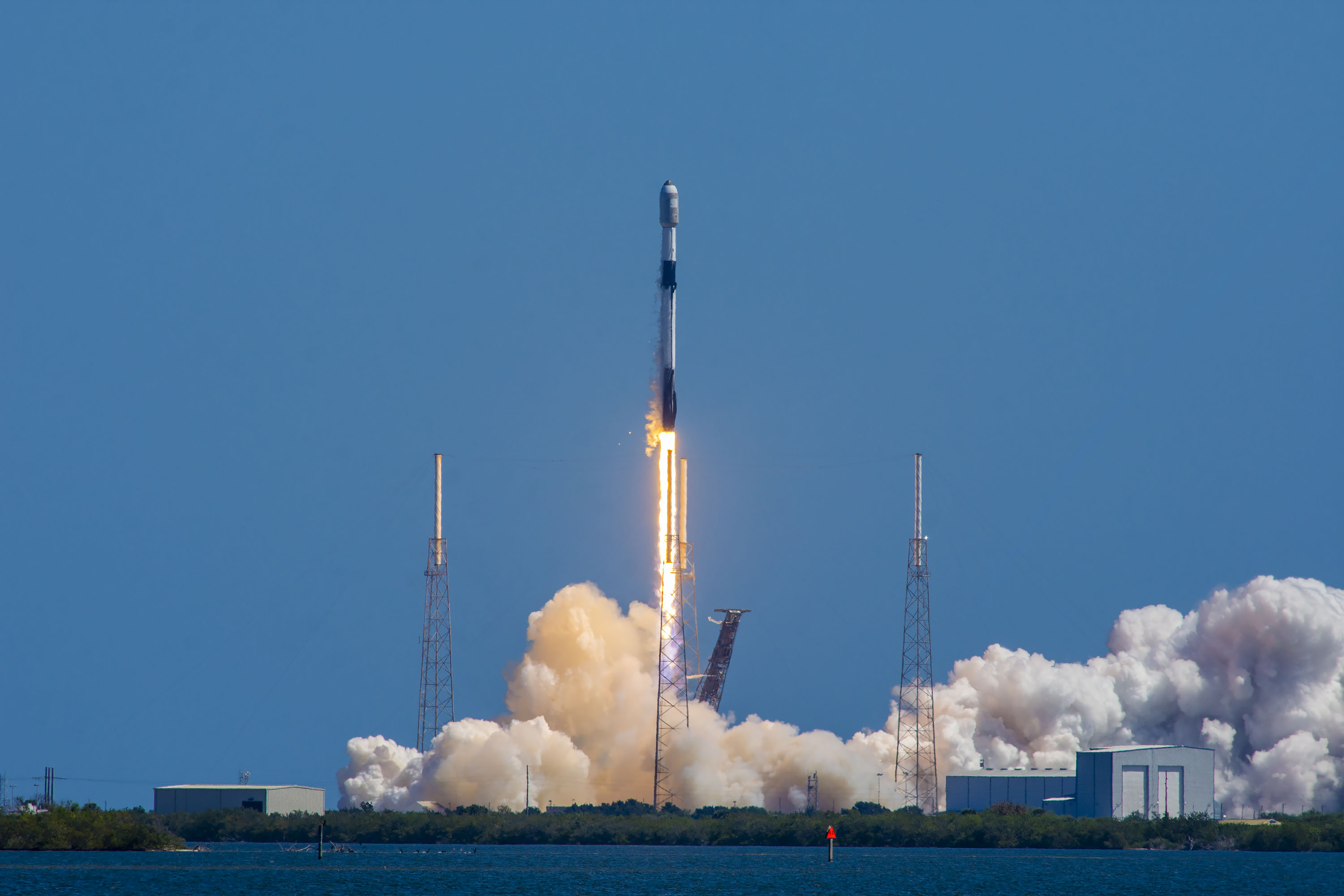SpaceX will launch a big telecommunications satellite to orbit tonight (May 23), weather permitting, and you can watch the action live.
A Falcon 9 rocket topped with the Arabsat BADR-8 satellite is scheduled to lift off from Cape Canaveral Space Force Station in Florida tonight at 11:25 p.m. EDT (0325 GMT on May 24).
Watch it live here at Space.com, courtesy of SpaceX, or directly via the company. Coverage is expected to begin about 15 minutes before the launch.
Mother Nature may not cooperate, however; forecasts as of Monday afternoon (May 22) predicted just a 25% of favorable weather at liftoff time, SpaceX wrote in a mission description. If tonight's try is called off, the next opportunity opens Wednesday at the same time.
Related: 8 ways that SpaceX has transformed spaceflight

If all goes according to plan, the Falcon 9's first stage will come back to Earth safely about eight minutes and 45 seconds after liftoff. The booster will land on the SpaceX droneship Just Read the Instructions, which will be stationed in the Atlantic Ocean off the Florida coast.
It will be the 14th mission for this particular Falcon 9 first stage, according to the SpaceX mission description. Among those previous flights are two private astronaut missions, September 2021's Inspiration4 and April 2022's Ax-1.
Ax-1, which was operated by Houston-based company Axiom Space, sent four people to the International Space Station for a roughly two-week stay. SpaceX just launched Axiom's second mission, Ax-2, sending its four crewmembers toward the orbiting lab atop a Falcon 9 on Sunday (May 22).
Fourteen flights is not a SpaceX reuse record, by the way. The current mark is 15, set last December on a mission that lofted a big batch of the company's Starlink internet satellites.
Arabsat BADR-8 weighs roughly 9,900 pounds (4,500 kilograms), according to EverydayAstronaut.com. The satellite is bound for geostationary orbit, about 22,200 miles (35,700 kilometers) above Earth.
It'll take four to five months for the satellite to reach its operational orbit. Once it's up there and fully checked out, BADR-8 will beam TV broadcasting and other telecom services to central Africa, Europe, and the Middle East for Saudi Arabia-based Arabsat, EverydayAstronaut.com wrote.







